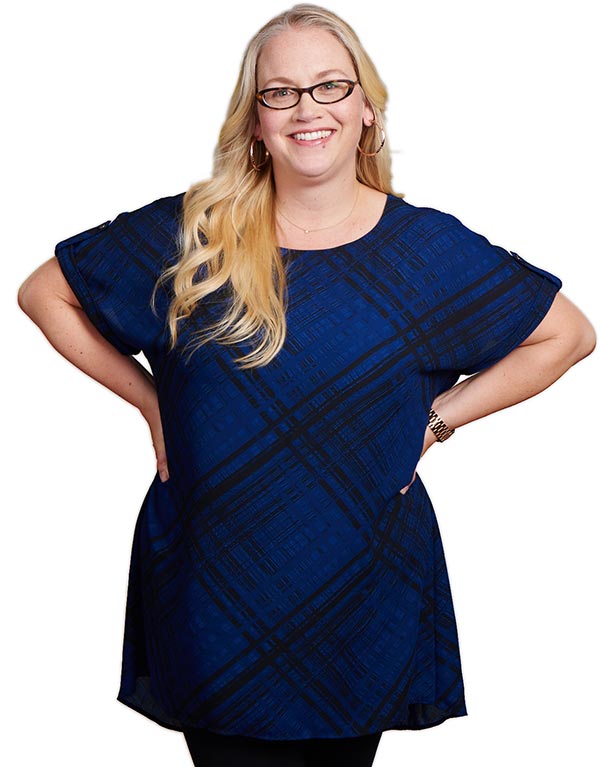This question came in from a 24-year-old HealthyGirl.org reader—I wanted to share it with all of you.
Q: Your site has really helped me come to terms with the fact that I have an unhealthy relationship with food. I’ve been reading books on the subject, which is definitely helping me to understand why I overeat and some ways to deal with it, and I plan to talk to a professional soon.
Although my intention is not to place blame, I have come to realize that a lot of my issues with food and my body stem from my mom’s negative feelings about food and her body. I’ve told her before how painful it is when she tells me I’m overweight and would be happier if I lost weight, and she’s gotten better but still lets hurtful comments slip here and there (e.g. Do you really need that? You shouldn’t still be hungry, You used to have such a cute body, etc). I can tell that she is constantly holding back from saying more, which is equally hurtful because I know that my weight still bothers her.
Despite this we get along well, and I’m really tired of this coming in between our relationship, because I do really love her. She knows I have an unhealthy relationship with food, but I haven’t yet told her that I have binge eating disorder. I really feel that in order to get better I need her to know this and to stop judging me, so I feel like I’m getting better for me and not for her. How do I approach telling her this without hurting her feelings or putting all of the blame on her? —Hillary, 24
A: Hey Hillary! First, congrats on taking such great steps toward healing and getting sane about food. And thanks so much for writing in—this subject is super close to my heart. Like you and your mom, my mother and I are really close, too (we were even closer when I was younger—I called her nearly every day all through my early- and mid- 20s!). But the food and weight thing used to cause so many fights, problems and hurt feelings between us.
She’d make comments about what I was eating, and whether I should be eating it; and she’d give me dieting advice. I often felt like she was looking over my shoulder. So I’d be “good” when she was around, but sneak into the kitchen late at night and binge on bread, crackers, ice cream, whatever we had. Anyhow, here’s how we dealt with it—perhaps this will work for you, too:
1. I educated my mom about emotional eating/eating disorders.
My mother already knew that I was weird about food, she knew I’d been putting on weight, she knew I couldn’t stay on a diet, she knew I stole food out of the fridge when no one was looking. And I think it was a relief for her when I filled her in on what I’d learned about that behavior: My “pigging” out really wasn’t about food or weight at all—it was a symptom of a psychological and emotional issue called emotional overeating (binge eating disorder hadn’t been defined yet when I was in my teens!), and a diet could never, ever fix it. I think she was almost as relieved as I was to know that there was an explanation for it. Need a way to start the conversation? I might try: “You know how I’ve been struggling with my weight and eating for a while? Well, I’ve been doing some reading lately and I think I’ve figured out something really important: The weight is just a symptom of the real problem. I’ve been using food for emotional reasons, and think I might have something called binge eating disorder.”
2. I told my mom that I needed to tackle this thing on my own.
If your mom is a normal(ish)—or at least a non-disordered—eater, it’s not surprising that she doesn’t know the best way to help you! I told my mom that her ways of dealing with her body and food simply didn’t work for someone like me, and that I needed her to refrain from giving me advice. As hard as it might be for your mother to watch you struggle, she needs to know that it is no longer her place to advise you about weight or food—that you don’t expect her to be able to tackle this stuff! But she can rest assured that you have other experts to go to now, and you’re looking out for yourself, and learning.
3. I asked my mom flat out not to make comments about food or my body anymore.
This one can be a toughie, especially if your mom is sensitive or gets defensive easily—but it’s super, super important. I told my mom that I knew she was only trying to help, but that her comments about what I ate and how my body looked actually hurt my feelings and made things worse for me. I know my mom felt terrible when she realized that her efforts to help were actually harming, but, honestly, it’s not our responsibility to shield our mothers from the truth. They’re grown women, and they get over the guilt.  A nice way to say it might be something like: “I know you’re trying to help when you ask about what I’m eating or try to nudge me to lose weight, but it’s backfiring for me. I’m dealing with this in my own way, in my own time, and I don’t want us to talk about weight or food anymore. Please, for me, try to stop yourself from making any comments about my food or my body.”
A nice way to say it might be something like: “I know you’re trying to help when you ask about what I’m eating or try to nudge me to lose weight, but it’s backfiring for me. I’m dealing with this in my own way, in my own time, and I don’t want us to talk about weight or food anymore. Please, for me, try to stop yourself from making any comments about my food or my body.”
To this day, food and weight isn’t something my mom and I talk about very often—and I like it that way. We’re plenty close without bonding over fat talk or food discussions.
Please let me know how it goes, Hillary. Be well!
xo…Sunny
[photo]






not only is it important for you to set boundaries for others…it creates a sense of power for you acknowledging where you’re at. great stuff.
In order to get my mom to stop the comments, I moved halfway across the country and didn’t let her see photos. Of course, this solution is not for everybody :p
But seriously, I know she only wanted me to be healthy, but the fact that she felt every “bad” decision I made was a reflection of her parenting skills got in the way of expressing that properly. If Hillary’s mom has struggled with weight, wanting her daughter to be thin is just an extension of her own frustration. She feels like a failure because she’s not skinny, so she tries to successfully control her daughter’s body and feels like a failure as a parent if she can’t.
I remember my ordeal with Binge Eating (check post BED on my blog). I wasn’t able to share my fears and thoughts with my mum. She was distant because she knew so little about Eating Disorders - sometimes parents have best intentions but they don’t know how to help and their comments can hurt…